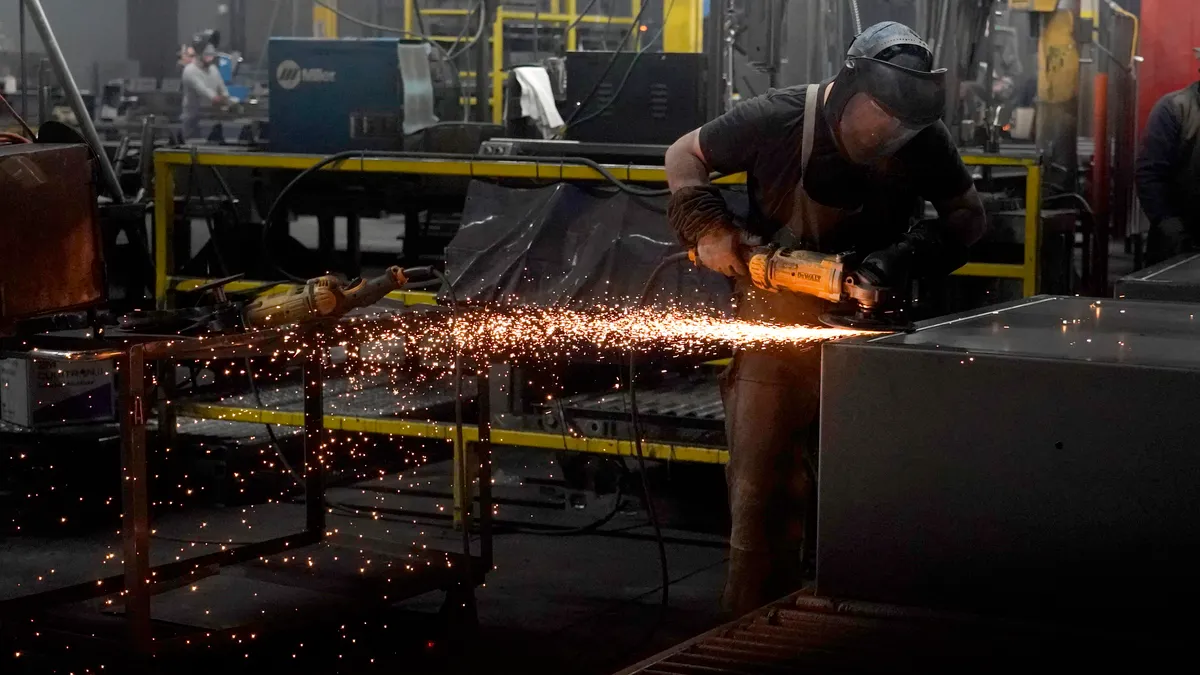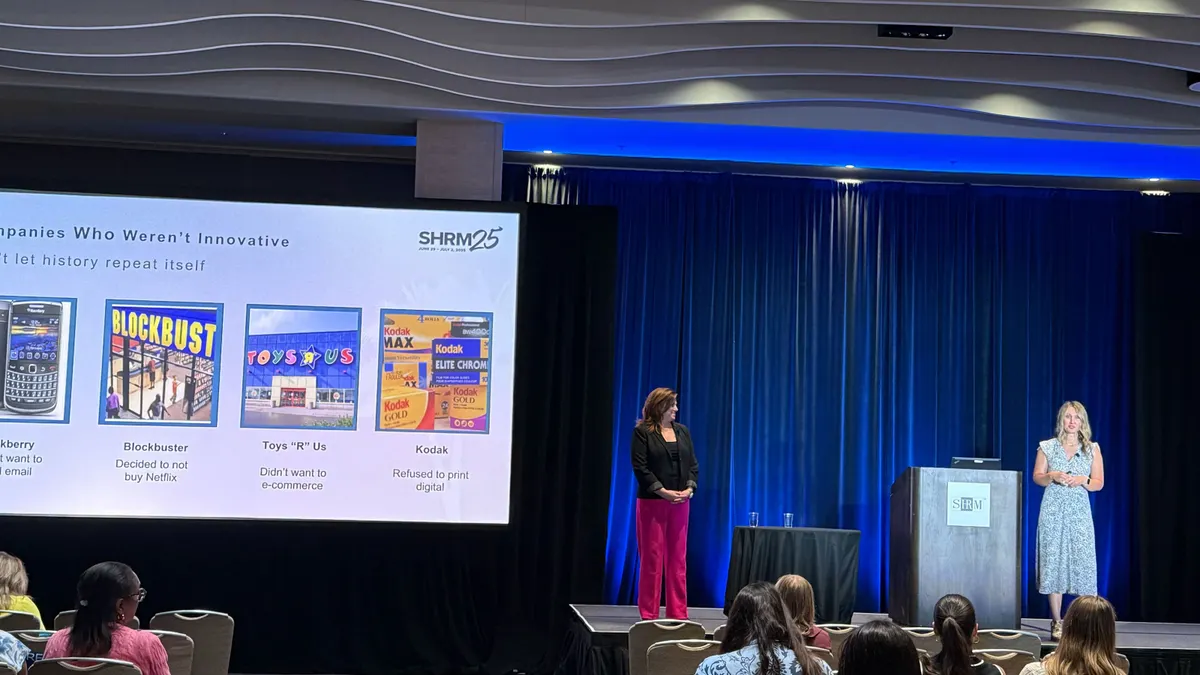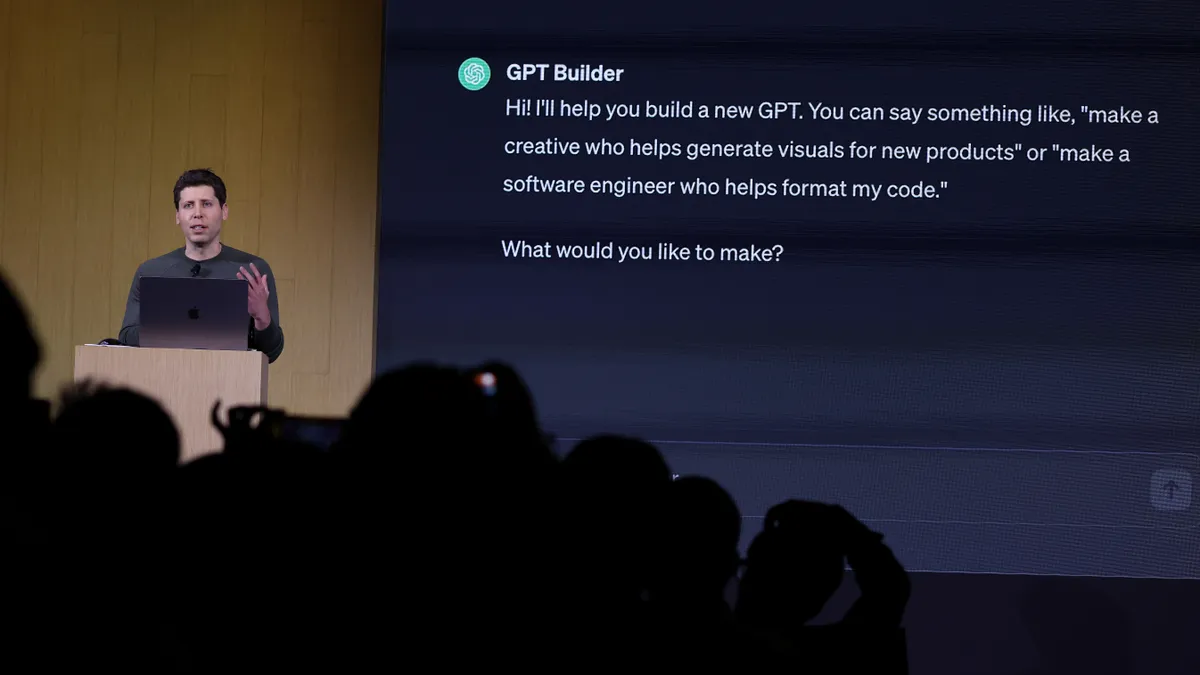Attention to detail is typically considered an innate trait — you either have it or you don't. But with so much focus on soft skills in today's market, more employers are indeed opting to train employees to be more detail-oriented.
But is it possible to do so effectively?
"Lack of attention to the details costs industries a lot of money," Charlene Maestas, senior director at Incentive Technology Group (ITG), told HR Dive in an email. "Not only in human hours to correct the problem, re-build relationships, etc., but also in trying to figure out where and why something happened."
Poor attention to detail leads to mistakes, confusion, dropped balls and missed KPIs, Katie Evans-Reber, head of people at Wonolo, said. "For the worker, continued missed execution due to poor detail-orientation has a greater effect on their personal reputation. In a world where perception is a reality, no one wants to be thought of as the person who often drops the ball or makes mistakes."
Employees who are not detail-oriented may struggle to stay on task, meet deadlines and deliver quality results, Andrea Backman, chief employability officer at SEI, told HR Dive. Without the tools to develop detail orientation, she warned, workers can be at risk for underemployment and fail to advance professionally.
What would training look like?
Employers often tell employees to take their time to get it right the first time — but it may not be a matter of time as much as a matter of structure.
Chris Denny, founder of Attention to Detail, had an employee who was technically very talented but who had terrible attention to detail. Denny looked online for resources and found them lacking — no books, workshops, nothing. So he decided to create something himself, and in the process discovered it "was a much bigger topic than I thought," he told HR Dive.
Denny posits there are three types of attention to detail.
- Contrastive: Where there's a single correct answer. These are exemplified by math solutions or checklists.
- Analytical: Problem solving where there may be multiple solutions and the focus has to be on determining the best strategy to move forward. These problems may need specialized knowledge, but parts of the process can be systemized.
- Additive: There may be an infinite number of solutions to these problems.
"It's not as important to know what type of detail you're working on," said Denny, "but if you're struggling it can be helpful to know what type."
From here, five fundamentals can help employees recognize where they may be missing the mark.
- Focus: Are they allocating the time and brainpower to get the task completed?
- Systems: Do they have the resources, checklists or guidance to get the job done? Automation could help ease some of these steps.
- Knowledge: Do they have the data or skills necessary?
- Interest: If an employee is not interested in filling out their expense reports, they'll likely be sloppy, Denny said.
- Attitude: There's no right or wrong attitude, but the workers with the best attitudes often are able to recognize what they do and don't know.
Denny said understanding these steps can help develop attention to detail by allowing a trainer or manager to see where the mark was missed and where efforts could be stepped up.
Shifting the focus to focusing
Sometimes simply being aware of the cost of mistakes can help employees straighten up, Maestas said. "Once they understand that their mistakes cost money — and sometimes embarrassment — they will be more likely to think twice before releasing something without the necessary steps."
Mistakes are a natural part of the learning process, and Evans-Reber believes people are naturally either detail-oriented or not (or somewhere in between). "As leaders," she said, "it's important that we recognize detail-orientation as a unique personality trait, rather than a flaw. When we flip our thinking from judgment to development, we can then begin to think about how best to teach mitigation techniques." Some of the most successful macro thinkers wouldn't characterize themselves as being detail-oriented, she said, but ask them how they have been able to work around this, and they'll offer a plethora of productivity, project management and to-do list tools that have helped.
Who benefits?
While differing roles and skill levels will have varying need, "accuracy and correctness are always a benefit, never a liability," Maestas said.
All employees can benefit from developing detail-orientation skills, Backman said. A detail oriented employee can be trusted to accomplish complex assignments without mistakes that cost an organization time and money, and like any skill, it requires training, focus and constant refinement.
"Higher education needs to make skills like detail orientation a priority and businesses should continue to invest in trainings that help develop productive habits and skills to make employees more effective in the workplace," she added. "That is an indispensable asset to employers and therefore critical for employees who are looking to advance their career."
If you have workers who are detail-oriented or good at project planning, tag them to lead the training, Evans-Reber said. "In that way, not only are they able to knowledge share but they gain practice at public speaking."
Denny finds a lot of people self-identify as non-detail oriented; they know they've been making mistakes, they're frustrated and they want to do better, but they don't have the resources they need. Providing those resources can benefit the worker and the workplace.




















